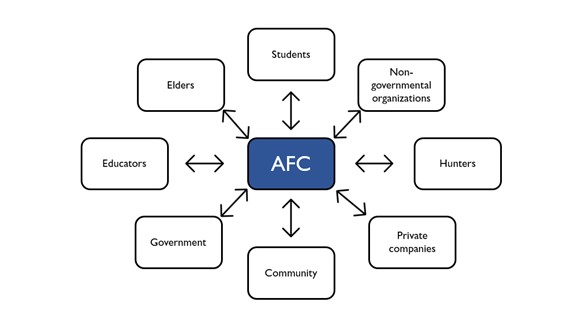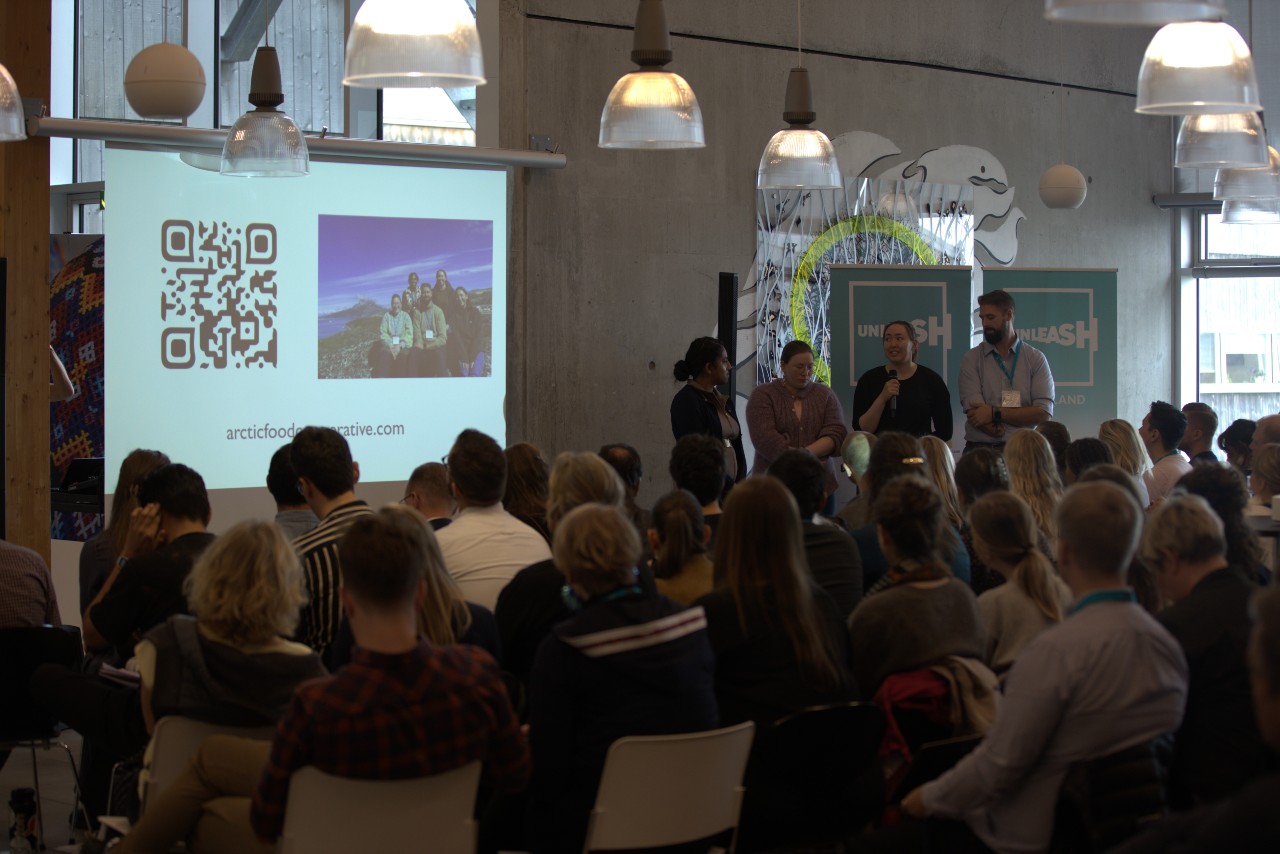SDG4: Good Health & Wellbeing (mental health)
Food is critical to every culture and especially the Arctic people. Since youth are often forced to leave their homes as young as age 14 to pursue education in many areas across the Arctic, it often creates feelings of loneliness and separation from their origins since they are away from their families and support structures.
Food to combat loneliness
The Arctic Food cooperative is focused on creating connection through the power of Arctic food. Once a week all year round, students are invited to a connection program focused on empowering youth with Arctic food knowledge.
The key program objectives are to combat loneliness and pass down culturally relevant knowledge through community specific implementation.


Team 21 presenting their idea at the UNLEASH Greenland la in Nuuk, August 2022.
So how does it work?
- The Arctic Food Cooperative (AFC) creates a toolkit for implementation starting in Nuuk and then expanding to greater Greenland and the Arctic. AFC would serve as a resource board with all local, community run leadership.
- AFC seeks local leadership through support of elders, partnerships, and local people in order to implement the program in a way that is locally anchored.
- Once the program is established, universities and municipalities would be used to advertise. Students can sign up and pay an extremely minimal fee to participate.
- On the day of the meet up, students would go to home economics kitchens or other areas to learn how to prepare food in traditional ways led by elders and professionals in the community.
- Once the food is prepared, the meal is enjoyed together creating a sense of connection and facilitating new intergenerational friendships. Students would also get to leave with meal prep for a few additional meals.
This idea is backed by scientific evidence including a study produced from an indigenous culture summer camp pilot in Alaska. Results from this study indicated that culture camps can significantly increase positive mood, feelings of belongingness, and perceived coping of participants.
Imagine the possibilities with an ongoing program?

